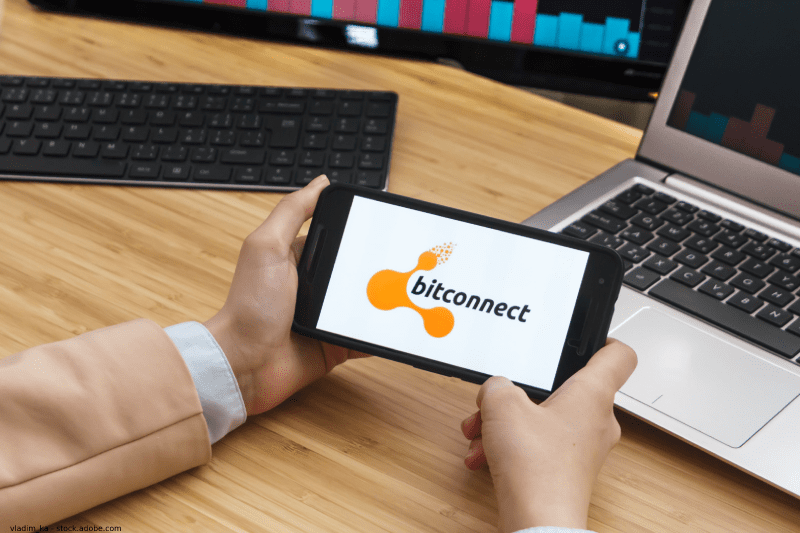BitConnect is a fraudulent cryptocurrency investment platform that reached a peak market capitalization of $3.4 billion. The platform turned out to be a Ponzi scheme and couldn’t pay back its investors. As a result, BitConnect was eventually shut down in January 2018.
Here’s what you need to know about the Bitconnect class action lawsuit and whether or not you can receive adequate compensation.
What is the Bitconnect class action lawsuit?
According to the BitConnect website, the platform shut down due to continued public scrutiny and bad press surrounding BitConnect. The platform also received two “Cease and Desist” letters from securities regulators in Texas and North Carolina, and there were multiple DDoS attacks on the website.
According to the lawsuit, the platform resembles a Ponzi scheme where investors can purchase cryptocurrency (BitConnect’s native coin) in exchange for high returns, which were said to be as high as 40% a month.
Shortly after the platform shut down, BitConnect’s native coin (BCC) price took a major nose dive and dropped by almost 92% in value. The token is considered to be useless now.
But BCC wasn’t the only cryptocurrency that experienced a sharp drop in value. Once the platform closed, many significant cryptocurrencies reported a 15 to 28% drop in value within 24 hours — a total estimated to be a collective $108 billion for the top ten global cryptocurrencies.
Consequently, investors worldwide are concerned about their crypto investments and fear the likelihood of additional losses.
What did the court decide?
The court decided that when promoters use online videos and social media to get people to buy BitConnect coins, they are still soliciting the purchases that result from that promotional material. Additionally, Judge Grant wrote, “Securities Act precedents do not restrict solicitations under the Act to targeted ones. We never added that those efforts at persuasion must be personal or individualized.”
Moreover, David Silver (the plaintiffs’ lawyer) tweeted that the law is clear and that if you promote via social media, you will be liable for the consequences.
The appellate court also confirmed that the promoters of BitConnect acknowledged that soliciting investments using social media is still solicitation. Additionally, the court found that the BitConnect platform is a fraud and soliciting investors online does not exempt that fraud from federal securities laws.
Can you file for a class action lawsuit?
Victims of the BitConnect Ponzi scheme can take legal action and proceed with class action suits. According to the 11th Circuit Court of Appeals, the alleged victims can now go ahead with their class action case against BitConnect and its promoters, including Trevon James, Glenn Arcaro, Ryan Maasen, Ryan Hildreth, and Craig Grant.
The original victims filed a lawsuit to get compensated for the damages from being defrauded by the platform and its promoters. The complaint says promoters “made a mockery of state and federal securities laws.”
However, there’s no update on whether or not the victims shall proceed with the case.
Get a no-obligation consultation with Shamis & Gentile
Shamis & Gentile, P.A. is working with the country’s leading cryptocurrency investor law firm, with actions already pending against the Coinbase, Kraken, and Cryptsy exchanges.
Did you invest in BitConnect and lose money?
Then fill out our Confidential Free Consultation Form for a no-cost, no-obligation consultation to join the BitConnect class action investigation lawsuit today!










